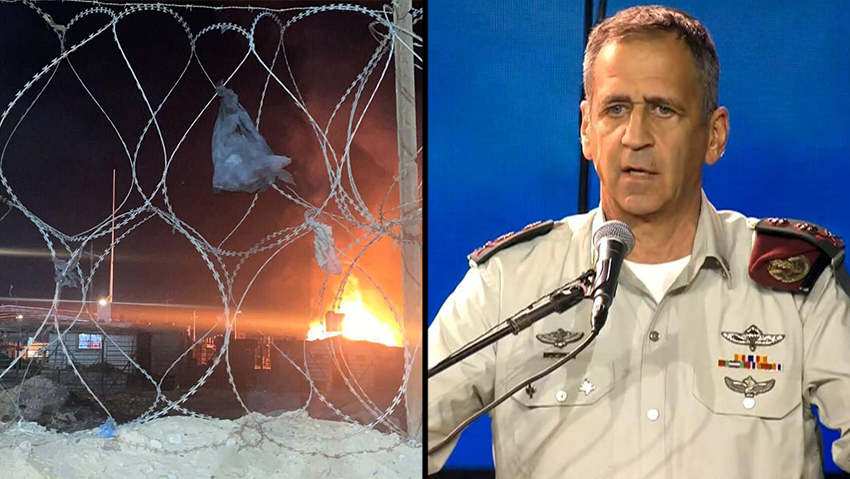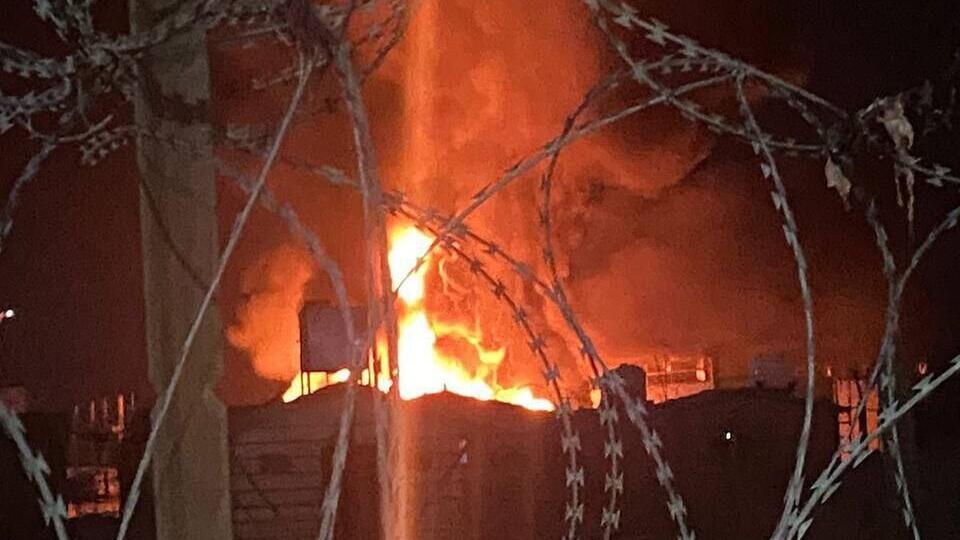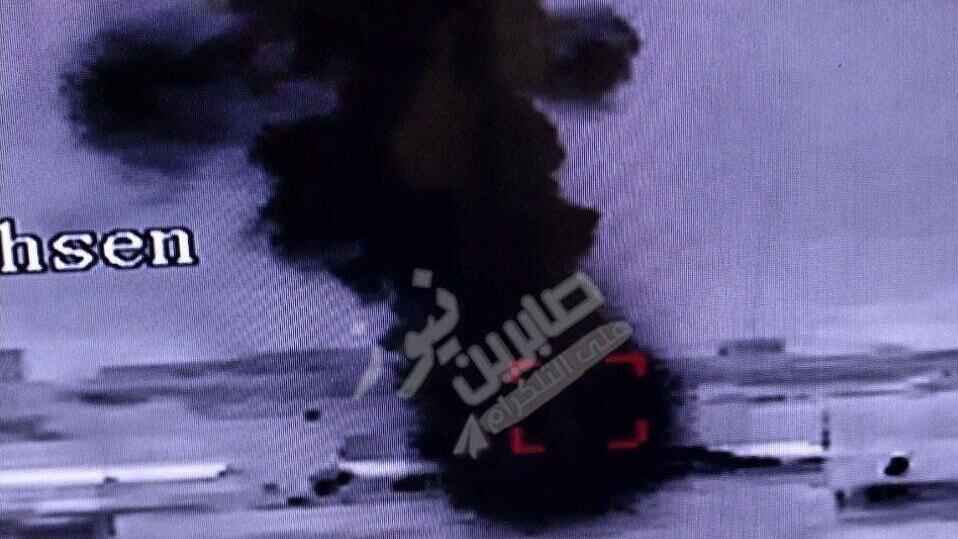IDF Chief of Staff Lieutenant General Aviv Kochavi confirmed on Wednesday that Israel was behind an airstrike near the Syrian border with Iraq against a convoy of trucks, in November.
Kochavi, speaking at an annual memorial ceremony for former IDF intelligence chief Amnon Lipkin-Shahak, said the mission was an indication of the IDF's abilities to locate and target threats.
“We could’ve been unaware of the Syrian convoy moving from Iraq to Syria a few weeks ago,” Kochavi said. “We could’ve been unaware of what it was carrying, and that out of 25 trucks in the convoy, number eight was carrying military equipment. We then need to send pilots able to evading surface-to-air missiles,” he said.
“To be clear,” Kochavi added, “Sometimes, 30 to 40 missiles are launched at our aircraft, with the highest number fired in one operation being 70. Forces need to attack, get a clean hit and return home. They’re also required not to kill uninvolved people. These are very advanced capabilities,” he said.
According to the Wall Street Journal who reported on the airstrike, the target of the attack was a convoy of vehicles crossing into Syria from Iraq, in which at least 10 people were killed, some among them being Iranian. Reports on Iranian casualties were later denied by Iran’s state media.
Iraqi officials told the paper that the convoy was transporting oil from Iran to Lebanon, although others who were interviewed said that some of the trucks were also carrying ammunition and missiles.
Officials in Iraqi border security told the WSJ that the strike was near the town Al-Bukamal, considered to be the ‘land bridge’ connecting Iran to Syria, Lebanon, and the Mediterranean Sea. Two of the trucks in the convoy were destroyed in the attack.
Several similar strikes took place in the area in recent years against other conveys, affiliated with Iran and against other military targets . Some foreign reports also attributed strikes to the U.S.
The Lebanese media channel Al Mayadeen reported that the recent strike that officials then attributed to Israel, was carried out after the convoy crossed into Syria. The Saudi Arabia-based Al Arabiya channel reported the convoys were headed for Lebanon.
Saudi media channel Asharq Al-Awsat, reported in November that Israeli military officials confirmed Israel was responsible for the strike. According to the report the convoy was carrying military equipment and ammunition, and not oil alone as claimed by Iran.
The military officials also said in the report that “after Iran suffered major blows that lead to the destruction of Iranian shipments in Syrian airports, they attempted to smuggle equipment via land routes.”
According to the officials, Iran attempted to disguise transportation of military equipment by utilizing a civilian convoy, hoping it would confuse Israeli intelligence. The officials said that estimations in Israel were that Syria requested to stop the convoys going through the country.
“The Israeli strikes badly damaged Syrian military infrastructure, but Iran insists on sending missile warheads to its industries in Syria and Lebanon, to insure the production and improvement of their precise missiles.”




